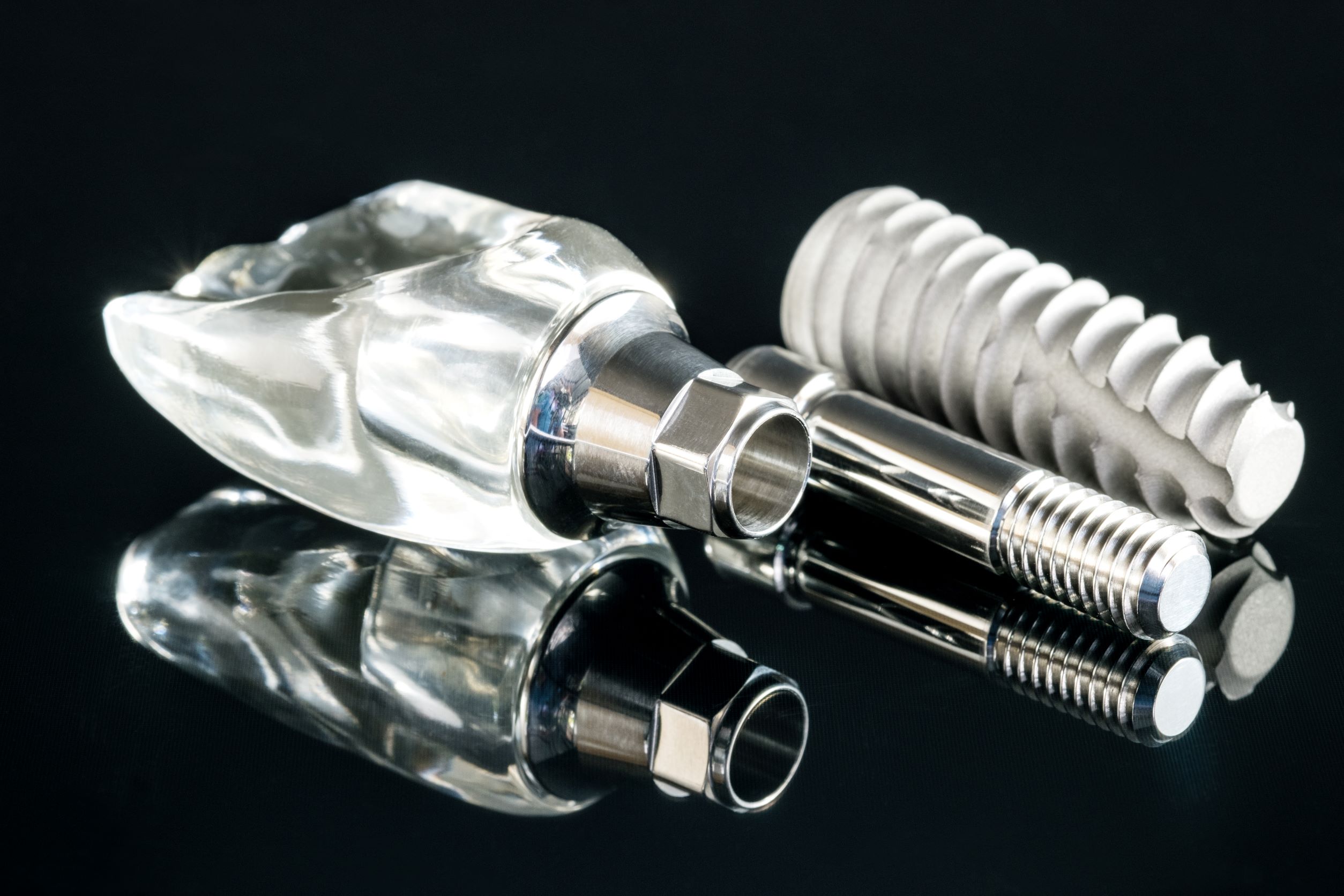The need to replace teeth is more common than you think. There are several reasons that might lead to tooth loss. These reasons include tooth decay, infection, injury, and more. You might feel insecure about your smile if you lose your tooth, which may affect your overall social behavior. The good news is that there are several solutions you can use to replace your teeth.
Although there are several options for tooth replacement, dental implants are one of the most effective ways to replace a missing tooth and restore a smile. However, it’s important to remember that dental implants are a serious financial investment.
The following article outlines what you need to know about dental implants. You’ll learn what dental implants are, the factors that might affect the cost of implants, and more. Keep reading.
What Are Dental Implants?
Dental implants refer to medical devices surgically inserted into the patient’s jaw to support an artificial tooth, called a crown. This will give the patient the ability to chew and also restore their smile and appearance. In other words, dental implants are replacement roots serving as a foundation for permanent or removable teeth.
Patients have been using dentures (removable artificial teeth) for many years to restore their smile’s appearance. However, implants might have more benefits than dentures. They involve a higher success rate and boost your chewing function.
It’s important to understand that dental implants might not be ideal for every patient. The implanting components need to bond with the jawbone. Hence, if you have a weak jawbone, it might affect the success rate of implants.
However, you might consider eating a number of healthy foods to boost your bone health. Also, you might be forced to undergo preparatory procedures, increasing the cost of replacing the missing tooth.
The Cost Of Dental Implants
As mentioned above, a dental implant isn’t a cheap investment. However, the cost will vary from one dental implant to another. The following are some factors that might affect the overall cost of dental implants.
1. Location
Where you live might affect the overall cost of dental implants. Each area has different minimum wages and living standards. If you live in an area with higher living standards, such as big cities, there is a higher chance the dentist will charge more.
On the other hand, if you opt for suburbs or rural areas, the cost of dental implants will be lower. This is because, in rural areas, there are lower living standards compared to big cities. It’s important, however, to visit more than one dentist to ensure you understand the average cost of dental implants in your area.
2. Number Of Dental Implants
This is another factor that will affect the cost of dental implants. The cost will vary depending on the number of dental implants you need.
Single Tooth Implant: When you’re buying an implant, you’ll also purchase other items such as an abutment—each with a separate price tag.
Generally, the price of replacing one tooth may range from USD$3,100 to USD$5,800. If you need preliminary procedures, such as a sinus lift, that must also be factored in the total cost of the dental implant.
Multiple Dental Implants: Sometimes, you may want to replace more than one tooth, which will ultimately affect the total cost of dental implants.
If you’re replacing teeth that are neighbors to each other, the cost might be cheaper than when they’re not. For example, if you’re replacing three neighboring teeth, the dentist may be able to use only a bridge and two implants. This arrangement might cost you between USD$6,000 and USD$10,000.
3. Materials Used
Several materials are used to make dental implants, which will affect the overall cost of replacing a missing tooth. For many years, dental implants have been generally made out of titanium for the root part and ceramic for the crown section. Titanium is commonly used because it’s biocompatible; hence, it binds well with your jawbone.
However, a patient may develop a metal allergy and sensitivity. In such a scenario, the dentist needs to recommend other materials that will impact the dental implant’s cost. In recent years, implants have been made out of other alternative materials, such as zirconia.
Before you get an implant, it’s important to ensure the materials used are certified and safe to use. Please make an effort to ask for documentation to ensure you get a safe and biocompatible material, saving you from health-related issues.
4. Preliminary Procedures
Depending on the situation of your jawbone, you might need to undergo additional processes before you can receive dental implants. For instance, your jawbone can become damaged over time after tooth loss. Hence, it might not be strong enough to support implants, affecting the success rate.
A dentist may conduct preliminary procedures, such as bone grafts, to strengthen the jawbone. Although bone grafts may help boost the success rate of implant treatments, they can range between USD$300 and USD$800 in cost, forcing you to shoulder more expenses during the treatment process.
Other preliminary dental processes, such as dental exams (from USD$50 to USD$200) and X-rays (from USD$25 to USD$750), may also increase the cost. Other procedures like sedation will add to the price as well.
Your overall oral health might affect the cost of dental implants. If you have oral issues, such as periodontal disease, your dentist may recommend addressing the issue first before installing dental implants. Although the treatments will increase the success rate of implants, they also increase your overall cost.
5. Qualification And Experience
This is another factor that might influence the overall cost of dental implants. If your dentist is only qualified to perform the initial phase of the restoration process, you’ll be forced to visit another oral surgeon to complete the process. In such a case, you might be paying more in the long run.
However, you can save a considerable amount of money and time by choosing an expert who can perform the entire treatment in-house. It’s important, however, to conduct extensive research to ensure you get a well-qualified dentist, guaranteeing the success rate of the tooth replacement process.
Additionally, please make an effort to go through client or patient feedback to gauge whether the dentist will meet your needs and expectations. If the dentist has lots of negative testimonials, it’s advisable to refrain from choosing them, as you might have the same experience and end up wasting your money.
Can Dental Insurance Help You Get The Best Treatment?
Dental insurance may play a huge role in lowering the overall cost of your dental procedure. However, it’s important to go through the policies to understand what is covered.
If dental implants are not included in your coverage, you might consider supplementary insurance and add the extras, guaranteeing you get the best treatment.  Hence, you can regain your attractive smile without dipping deep into your life savings.
Hence, you can regain your attractive smile without dipping deep into your life savings.
Also, you can take advantage of preventive coverage to maximize your insurance. If the oral issues are detected early enough, you can avoid expensive and time-consuming treatments in the long run.
What Are The Major Benefits Of Dental Implants?
The following are the major reasons why you should consider dental implants.
Prevent Further Tooth Loss
You might know that your teeth are held in place by their roots and surrounding teeth. Hence, if you lose a tooth, the remaining teeth might tilt towards the free space and become loose. The situation may deteriorate, and you may end up losing more teeth. Dental implants act like natural teeth, offering extra support and preventing more teeth from falling out.
Improve Nutrition
This is another benefit of dental implants. After losing a tooth, you might find it hard to maintain a balanced diet. You’ll find yourself eating soft foods to avoid biting down in pain.
However, it’s important to understand that by avoiding certain foods, you’re also depriving your body of the nutrients needed to stay healthy. And you might experience issues such as weak jawbones.
As stated earlier, dental implants act like natural teeth. With their help, it’ll be easier for you to maintain a balanced diet and acquire the necessary nutrients in improving your overall health, making you feel younger naturally.
Enable Natural Speech
If you have a missing tooth, you might realize it has changed how you speak. Restoration options, such as dentures, may also change the way you speak and cause a lisp or slur. This can be distracting and embarrassing, and it can affect your self-esteem and confidence.
Fortunately, a dental implant with a crown-supported denture provides a surface for your tongue to press against when speaking. As a result, you’re able to speak easily and naturally, which will likely boost your self-esteem.
Conclusion
As mentioned above, dental implants have become a popular option for people who want to replace their missing teeth. However, take note that dental implants aren’t a cheap investment and require a well-informed financial decision. It’s important for you to conduct your research to understand the factors that might affect the cost of your dental implants.








